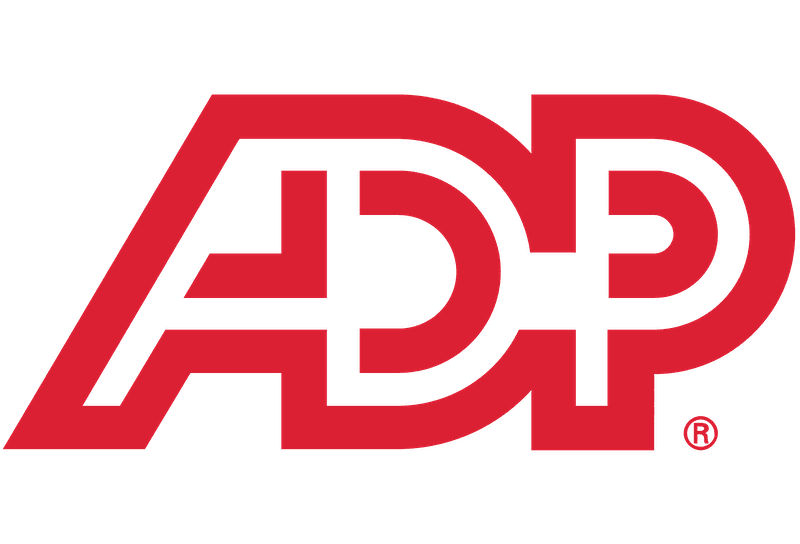MENU
Starting a Business
- Best Small Business Loans
- Best Business Internet Service
- Best Online Payroll Service
- Best Business Phone Systems
Our Top Picks
- OnPay Payroll Review
- ADP Payroll Review
- Ooma Office Review
- RingCentral Review
Our In-Depth Reviews
Finance
- Best Accounting Software
- Best Merchant Services Providers
- Best Credit Card Processors
- Best Mobile Credit Card Processors
Our Top Picks
- Clover Review
- Merchant One Review
- QuickBooks Online Review
- Xero Accounting Review
Our In-Depth Reviews
- Accounting
- Finances
- Financial Solutions
- Funding
Explore More
Human Resources
- Best Human Resources Outsourcing Services
- Best Time and Attendance Software
- Best PEO Services
- Best Business Employee Retirement Plans
Our Top Picks
- Bambee Review
- Rippling HR Software Review
- TriNet Review
- Gusto Payroll Review
Our In-Depth Reviews
- Employees
- HR Solutions
- Hiring
- Managing
Explore More
Marketing and Sales
- Best Text Message Marketing Services
- Best CRM Software
- Best Email Marketing Services
- Best Website Builders
Our Top Picks
- Textedly Review
- Salesforce Review
- EZ Texting Review
- Textline Review
Our In-Depth Reviews
Technology
- Best GPS Fleet Management Software
- Best POS Systems
- Best Employee Monitoring Software
- Best Document Management Software
Our Top Picks
- Verizon Connect Fleet GPS Review
- Zoom Review
- Samsara Review
- Zoho CRM Review
Our In-Depth Reviews
Business Basics
- 4 Simple Steps to Valuing Your Small Business
- How to Write a Business Growth Plan
- 12 Business Skills You Need to Master
- How to Start a One-Person Business
Our Top Picks
Employment Practices Liability Insurance: Why Small Businesses Need EPLI

Table of Contents
With employee lawsuits on the rise, small businesses should consider purchasing employment practices liability insurance (EPLI). EPLI protects your company if current, past or prospective employees sue for alleged wrongful treatment.
This type of liability insurance is increasingly important, especially since companies in the U.S. spent over $23 billion on employment litigation from 2015 to 2021, according to . Industry analysts expect these types of losses to continue to impact businesses across various industries in the coming years.
Learning more about EPLI and how it compares to other types of business insurance will help you determine whether it’s the right fit for your company.
What is employment practices liability insurance (EPLI) and why do employers need it?
EPLI is a business insurance policy that protects businesses from claims of mistreatment by employees. It provides coverage for a variety of lawsuits, including sexual harassment, discrimination and mismanagement of employee benefits. If an employee files a lawsuit against your company, EPLI may help pay for legal costs and damages, regardless of the outcome of the suit.
No one wants to believe a current or former employee would sue them, but the reality is that these kinds of lawsuits are on the rise. Without adequate liability protection, even one lawsuit could be financially devastating for your business. At the very least, a lawsuit can hurt your company’s reputation and ability to make money in the future.
You can prevent employee lawsuits by creating effective hiring programs to avoid discrimination and documenting any disputes that occur in the office.
What does EPLI cover?
EPLI insurance typically covers the following claims against employers:
- Sexual harassment
- Discrimination (based on age, sex, disability, sexual orientation, national origin, etc.)
- Wrongful termination or retaliation
- Breach of contract or employment agreement
According to the Equal Employment Opportunity Commission (EEOC), data shows that retaliation remains the most frequently cited claim in charges filed with the agency, accounting for more than 51.6 percent of all charges filed. This is followed by claims of discrimination based on disability, race and sex. The following categories of discrimination are noted in descending order of frequency:*
- Retaliation: 37,898 (51.6 percent of all charges filed)
- Disability: 25,004 (34 percent)
- Race: 20,992 (28.6 percent)
- Sex: 19,805 (27 percent)
- Religion: 13,814 (18.8 percent)
- Age: 11,500 (15.6 percent)
- National origin: 5,500 (7.5 percent)
- Color: 4,088 (5.6 percent)
- Equal Pay Act: 955 (1.3 percent)
- Genetic information: 444 (0.6 percent)
* These percentages add up to more than 100% because some charges allege multiple bases.
What’s interesting is that EEOC data shows that employees continued to file claims during the pandemic, when most people were opting to work from home. EEOC legal staff resolved 165 merits lawsuits and filed 93 lawsuits alleging discrimination in 2020 alone. The EEOC said it recovered a little over $106 million through litigation for charging parties and other aggrieved individuals. This was the largest recovery through the EEOC’s litigation program in the past 16 years.
Given the legal risk, it’s important to look for an appropriate EPLI policy for your business. In addition to standard insurance coverage, you may want to consider a third-party EPLI policy, which covers costs associated with settlements, judgments, and discrimination and harassment claims from third parties.
Many employee complaints center on wage disputes, like job classification and overtime calculations.
What does EPLI exclude?
There are many common exclusions to EPLI. Although these vary from state to state, coverage typically excludes these areas:
- Penalties
- Punitive damages or fines (varies by state)
- Civil fines
- Fines associated with criminal, fraudulent or malicious acts
- Contractual liabilities
- Workers’ compensation, disability or unemployment claims
- Violations of wage and hour laws
- Employee Retirement Income Security Act (ERISA) violations
- Consolidated Omnibus Budget Reconciliation Act (COBRA) violations
- Worker Adjustment and Retraining Notification (WARN) Act violations
- Strikes and lockouts
- Prior litigation and claims
- Claims related to the use of social media
- Claims related to unemployment benefits
- Property damage
- Claims of bodily injury
- Claims outside of the U.S.
How much does EPLI cost?
The cost of your EPLI policy will be determined by a variety of factors, including your industry, your business location and if you’ve had similar claims filed in the past. On average, a standard $1 million EPLI policy costs $800 to $1,500 per year for up to five employees. If your business has fewer than 20 employees with revenue under $500,000, you can expect to pay just under $2,000 per year for $500,000 in coverage.
Estimates and premiums are based on a business’s location, industry, payroll, number of employees and experience. Underwriters typically examine the following risk assessment factors to determine the price of the policy:
- The number of employees (the primary determinant of a premium)
- Financial worth of the company
- Industry or business
- Turnover rates
- Hiring and firing procedures
- Claims history
- Coverage limits (lower premium for a smaller coverage amount, similar to other insurance plans)
- The company’s risk management practices
- Deductibles (lower premium for a higher deductible, which is similar to health insurance plans)
- Written company procedures on employee conduct and training
Another determining factor in the cost of EPLI is the amount of coverage your business needs. Most EPLI policy limits range from $100,000 to $1 million. Also note that many EPLI policies have a deductible, which means you can lower the cost if you raise the deductible. You may want to consult an attorney to ensure you have adequate coverage.
Why are employee lawsuits on the rise?
Employee lawsuits are on the rise, and many business owners are at a loss for how to curb this trend. Not only are employee lawsuits costly, but they hurt morale and productivity, especially if a current employee filed the suit.
One reason employee lawsuits are increasing is because people have more awareness of their legal rights in the workplace. Legal protections and labor laws have expanded to give employees more protections, and the EEOC is coming down harder on companies that don’t comply.
Increasingly, companies are also requiring their employees to come back to the office after letting them work from home the past few years. Many employees become resentful over return-to-office mandates, and are suing their employers for breaching contract terms.
The bottom line is that small business owners must take steps to protect their company from the threat of lawsuits. EPLI coverage can protect your business if the worst occurs.
Nicole Urbanowicz contributed to this article.










